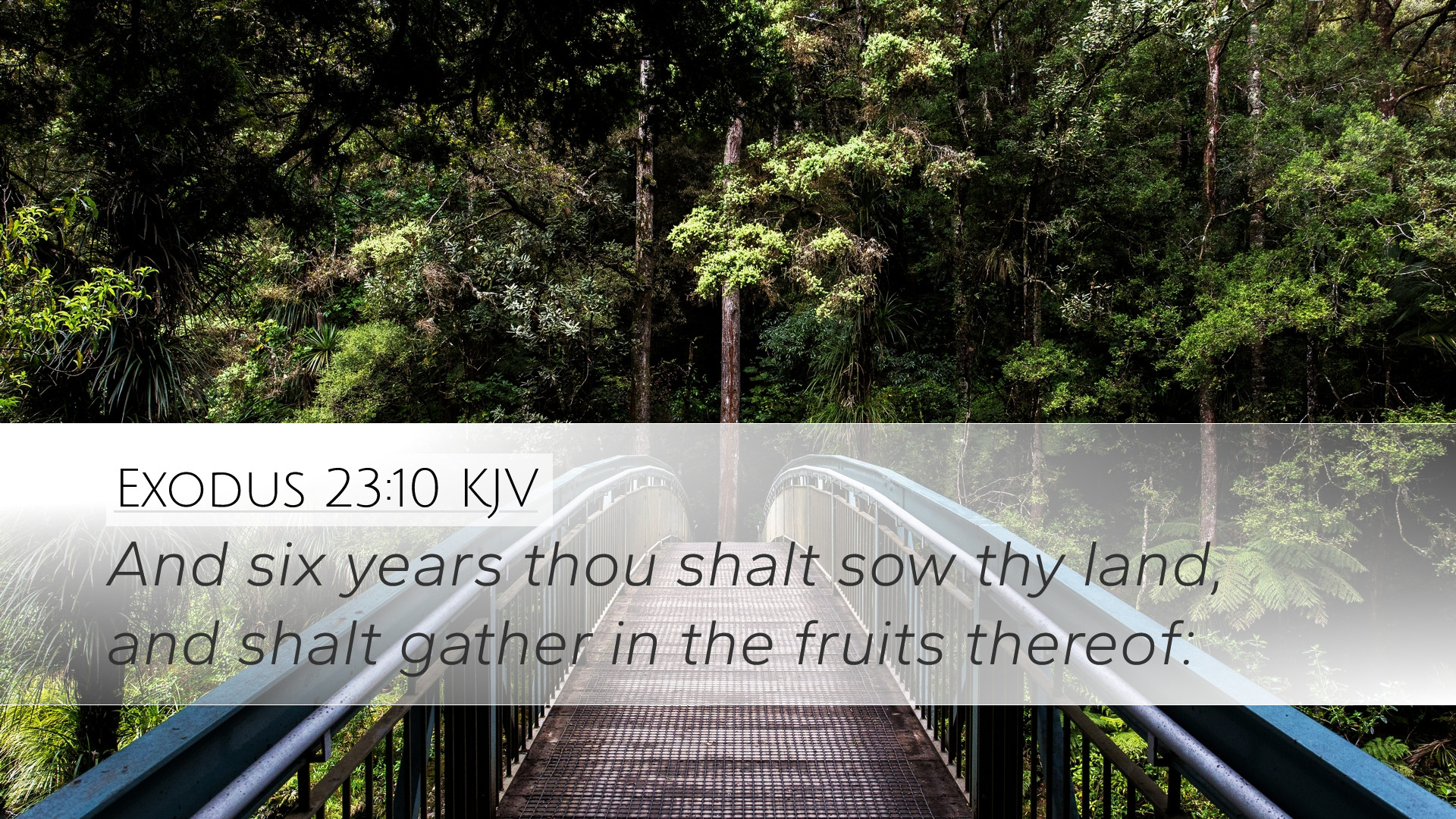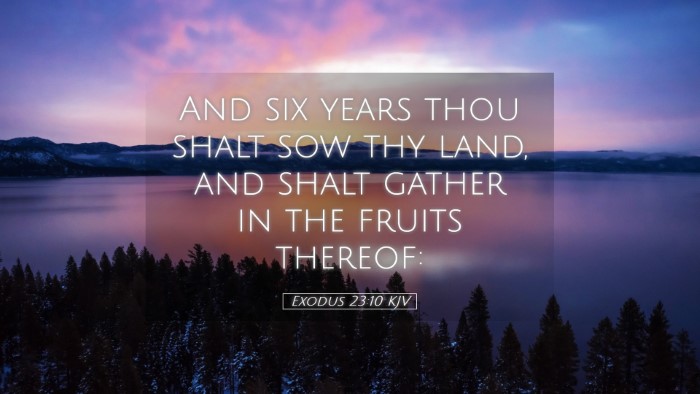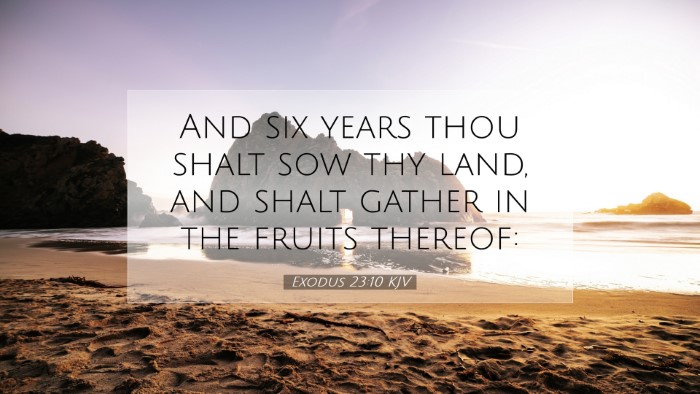Exodus 23:10 - Biblical Commentary
Verse: "For six years you are to sow your fields and harvest the crops."
Contextual Analysis
This verse appears within a section of Exodus that addresses various laws given to the Israelites after their exodus from Egypt. It falls under the broader category of agricultural laws, emphasizing not only the importance of agricultural productivity but also the integration of spiritual principles into daily life.
Theological Insights
Divine Order in Labor: The verse outlines a divine-order principle regarding agricultural practice. As Matthew Henry notes, the directive to sow and harvest for six years signifies a period of labor that is structured yet balanced. Such a structure implies that work has its seasons and that periods of rest and cessation are spiritually vital.
The Importance of Rest
Spiritual Implications of the Sabbatical Year: This verse sets the stage for the subsequent laws about the sabbatical year, wherein agricultural lands are commanded to rest in the seventh year. This reflects a broader spiritual truth that both man and land require rest and rejuvenation. Albert Barnes comments on the significance of rest not only for physical regeneration but also as an exercise of faith in God’s provision. This can be seen as a precursor to later principles outlined in the New Testament regarding the rhythm of work and rest.
Practical Applications
Faithful Stewardship: This directive serves as a reminder to modern believers of the importance of faithful stewardship of resources. Adam Clarke emphasizes that productive labor is a God-given mandate. The faithful adherence to the agricultural cycles as prescribed indicates that the Israelites were to act as responsible caretakers of God’s creation.
Evangelical Reflection: Pastors and leaders can draw on this principle to encourage congregations to engage in proper stewardship of not only resources but also of time and relationships, treating these as gifts from God that require attention, investment, and periods of rest. Emphasizing the biblical wisdom inherent in organized work and intentional rest can promote holistic spiritual health in church communities.
Historical Context
This command was given to the Israelites during their journey through the wilderness towards the Promised Land. It reflects the agrarian lifestyle they were to embrace. Matthew Henry points out that these commands served a dual purpose: they shaped the social fabric of Israelite society, emphasizing communal well-being and the central role of God's law.
Broader Biblical Themes
The Cycle of Work and Rest: This principle of agricultural stewardship anticipates the broader biblical theme of work and rest. It echoes throughout Scripture from Genesis, where God rests on the seventh day, to Christ’s teachings on rest as part of spiritual discipline. The importance of recognizing the natural rhythms established by God cannot be overstated in nurturing both land and soul.
Conclusion
In concluding the reflections on Exodus 23:10, it is evident that this verse, while specific in its agricultural instruction, has profound implications for our understanding of God's law, the nature of work, and the necessity of rest. For pastors and theologians, this is an invitation to explore deeper issues of stewardship, faith, and the rhythm of life as designed by God. By taking time to cultivate a rhythm of work entwined with rest, we can align ourselves closer to the heart of God.


